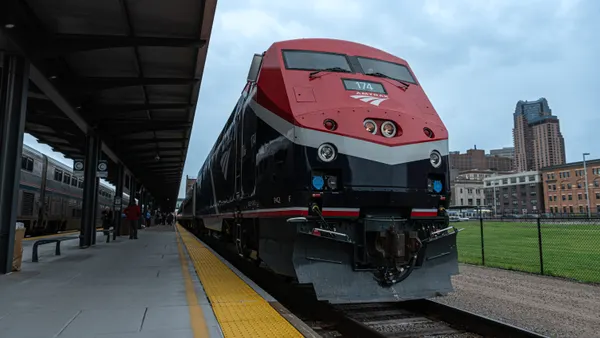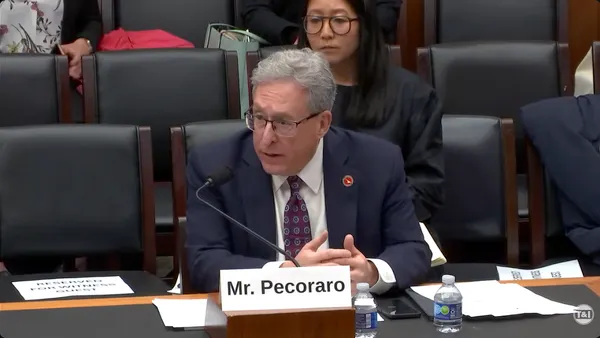Dive Brief:
- Liability concerns, including the insurance market and operator responsibilities, are the top impediment in bringing autonomous vehicles (AVs) to market, according to a new survey of tech and auto industry officials and regulators. Consumer safety perception was second on the list of barriers in the survey released by law firm Perkins Coie LLP and the Association for Unmanned Vehicle Systems International (AUVSI).
- Recognizing the need for new regulations that could clear up liability questions as well as other concerns, more than half (54%) surveyed said new rules should come from the federal government. Less than a quarter (23%) of respondents said such rules should come from an industry-led coalition.
- On specific regulatory issues, respondents said the federal government should have oversight over design, construction and performance of AVs, but that states should take the lead in areas such as licensing, training and traffic safety.
Dive Insight:
The survey results — reflecting the input of 260 industry and regulatory officials — underscore what’s been a major barrier to AV deployment so far: consumer trust. A survey released by Deloitte last week found that 50% of consumers did not think that AVs would be safe, reflecting safety concerns that have accelerated in the light of the fatal Uber self-driving car accident in Arizona last spring. The new survey found 30% of respondents felt that “loss of consumer confidence” was the top way recent problems had affected the industry’s growth, followed by “increased consumer belief that the technology is being deployed too quickly.”
Automakers have tried to ease the public into the new technology through steps such as self-driving taxi services and slow-moving autonomous shuttles. A coalition of automakers, tech companies and concerned organizations also announced last week a public education campaign about the impacts of AVs, called Partners for Automated Vehicle Education (PAVE).
Given the public’s questions and the ongoing uncertainty about liability and management questions, it makes sense that industry sources would seek unified regulations from the federal government — notably, two-thirds of the regulators in the survey said there would be federal rules sometime in the next five years. The U.S. Department of Transportation (USDOT) took another step this fall, with an updated set of rules that notably no longer “assumed” a human driver behind the wheel, but kept many safety issues voluntary as to not restrict the industry.
However, the administration has tried to slow-walk its regulatory approach, instead leaving the burden to Congress. Lawmakers failed to reach agreement on an AV bill last session, and in the meantime, cities and states are stepping in with their own rules, a potentially worrisome outcome for an industry that doesn't want to see a patchwork of regulations.











